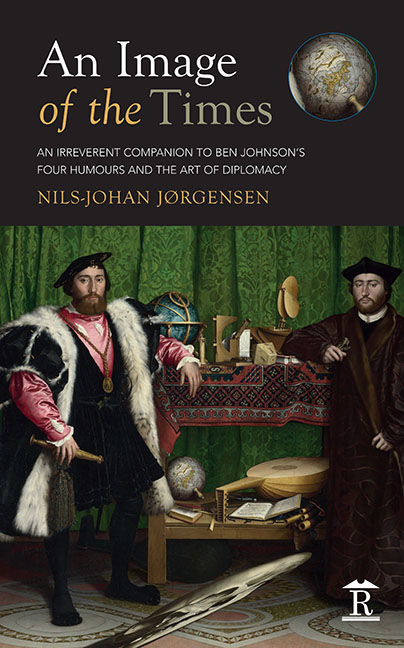Book contents
- Frontmatter
- Dedication
- OTHER WORKS IN ENGLISH BY THE SAME AUTHOR
- Contents
- Acknowledgements
- Induction
- Chapter 1 Ben Jonson and his Sources
- Chapter 2 Humorous Characterization in the Comedies of Ben Jonson
- Chapter 3 The Influence of Jonson on Seventeenth And Eighteenth-century Comedy
- Chapter 4 The Intrusion of Humorous Characterization into the English Novel
- Chapter 5 The Meaning of the Comic
- Chapter 6 Nomadic Humours
- Chapter 7 Unconscious Revelation
- Postscript
- Index
Chapter 4 - The Intrusion of Humorous Characterization into the English Novel
Published online by Cambridge University Press: 06 May 2022
- Frontmatter
- Dedication
- OTHER WORKS IN ENGLISH BY THE SAME AUTHOR
- Contents
- Acknowledgements
- Induction
- Chapter 1 Ben Jonson and his Sources
- Chapter 2 Humorous Characterization in the Comedies of Ben Jonson
- Chapter 3 The Influence of Jonson on Seventeenth And Eighteenth-century Comedy
- Chapter 4 The Intrusion of Humorous Characterization into the English Novel
- Chapter 5 The Meaning of the Comic
- Chapter 6 Nomadic Humours
- Chapter 7 Unconscious Revelation
- Postscript
- Index
Summary
Henry Fielding
THE WORK AT HAND is The History of the Adventures of Joseph Andrews, And of his Friend Mr Abraham Adams. Written in Imitation of the Manner of Cervantes, Author of Don Quixote (1742). In the ‘Authors Preface’ Fielding makes a point of defining the ridiculous in a familiar Jonsonian spirit:
The only source of the true Ridiculous (as it appears to me) is affectation ….Now, affectation proceeds from one of these two causes, vanity or hypocrisy; for as vanity puts us on affecting false characters, in order to purchase applause; so hypocrisy sets us on an endeavour to avoid censure, by concealing our vices under an appearance of their opposite virtues.
Fielding goes on to say that affectation in a vain man ‘sits less awkwardly on him than on the avaricious man, who is the very reverse of what he would seem to be’. It is in the discovery of the affectation that the surprise and pleasure of the ridiculous become apparent. This is strongest when the affectation stems from hypocrisy and not just vanity, because hypocrisy is the exact reverse of what it affects. In this context he gives credit where it is due: ‘I might observe that our Ben Jonson, who of all men understood the Ridiculous the best, hath chiefly used the hypocritical affectation.’
The author warns against making all imperfections of nature the object of ridicule and derision. Only a warped mind can look on infirmity, poverty or ugliness as ridiculous in themselves but unfortunate circumstances can raise our mirth if we discover sudden indecorous affectations of agility, riches or beauty in the same imperfections. It is the heartless laughter of external circumstances regardless of position and circumstances that Bergson would later explore.
It had not been possible to avoid the introduction even of black vices into his own work because it would be difficult to pursue a series of human actions and at the same time keep clear from them. The vices are the object of detestation.
In comedy proper it is appropriate to confine the action strictly to nature, ‘from the just imitation of which will flow all the pleasure we can this way convey to a sensible reader’. He distinguishes his work from romance and burlesque.
- Type
- Chapter
- Information
- An Image of the TimesAn Irreverent Companion to Ben Jonson's Four Humours and the Art of Diplomacy, pp. 118 - 124Publisher: Amsterdam University PressPrint publication year: 2015



